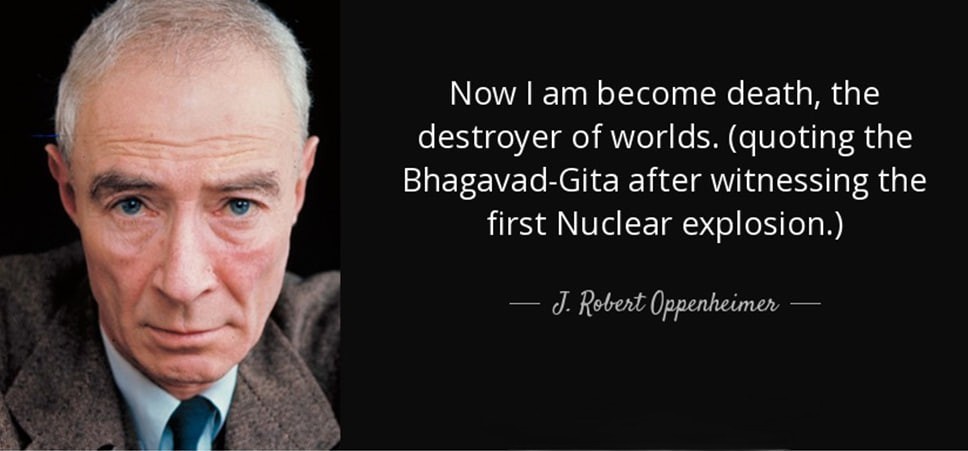Description

Copyright infringement not intended
Context: Julius Robert Oppenheimer is known as the "Father of the Atomic Bomb" for his role in organising the Manhattan Project, the research and development effort that resulted in the first nuclear weapons.
Details
- Oppenheimer was born in New York City in 1904 and displayed early academic talent. His family was wealthy and educated, and he had a privileged upbringing.
Educational Journey
- Oppenheimer attended New York's Ethical Culture School, where he excelled in a variety of courses, including physics and languages.
- Later, he attended Harvard University, where he got a Bachelor of Science in chemistry in 1925. He then completed his PhD in physics at the University of Göttingen in Germany.
Scientific Career
- After obtaining his doctorate, Oppenheimer went to the United States and joined the faculty of the University of California, Berkeley.
- He made substantial contributions to theoretical physics throughout the 1930s, particularly in quantum mechanics and spectroscopy. He swiftly rose to prominence in the scientific community.
The Manhattan Project
- When World War II broke out, Oppenheimer's career took a dramatic shift. In 1942, he was named scientific head of the Manhattan Project, a top-secret US government endeavour to create the atomic weapon. Oppenheimer was a key figure in the successful development of the first nuclear bombs, leading a team of great scientists and engineers.
The Trinity Test and Aftermath:
- In July 1945, the world's first atomic bomb exploded in New Mexico, bringing the Manhattan Project to a close. The successful test signalled the beginning of the nuclear age. Oppenheimer, on the other hand, was disturbed by the ethical and moral implications of unleashing such powerful weapons.
- He famously quoted the Hindu scripture, the Bhagavad Gita, saying, "Now I am become Death, the destroyer of worlds."
Post-War Struggles:
- After the war, Oppenheimer's security clearance was revoked due to suspicions about his previous involvement with left-wing organisations and alleged connections to Communist sympathisers.
- He lost his security clearance in 1954, effectively ending his direct engagement in government science initiatives.
Later Years
- Oppenheimer devoted the later part of his life to teaching and research. He returned to academia and lectured at Princeton's Institute for Advanced Study. Despite the criticism, he continued to make contributions to theoretical physics and mentored a new generation of scientists.
Legacy
- Robert Oppenheimer's scientific discoveries and role in the development of the atomic bomb are important to his legacy. Even though his later years were tarnished by political problems, he is remembered for his brilliance as a scientist and his leadership during the Manhattan Project.
- Robert Oppenheimer died in 1967, leaving behind a complex and lasting legacy that is still disputed and studied today.
|
PRACTICE QUESTION
Q. Recently “Manhattan Project” was frequently seen in the news, it is related with;
A. Malware
B. Defense System
C. Atomic Bomb
D. CyberSecurity
Answer: C
|

https://indianexpress.com/article/explained/explained-sci-tech/robert-oppenheimers-road-to-becoming-the-father-of-the-atomic-bomb-8848147/
















